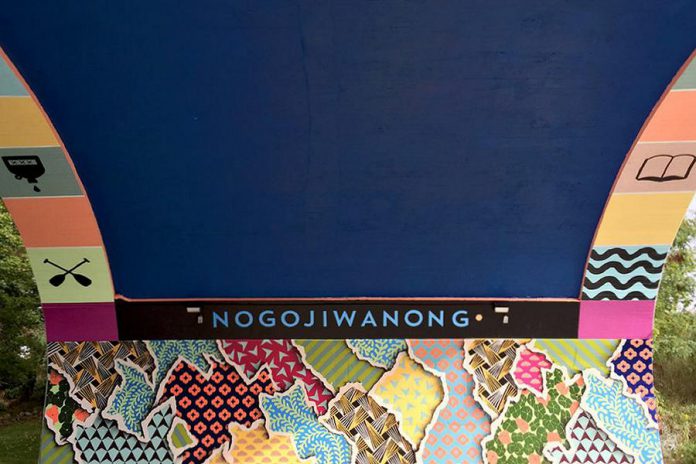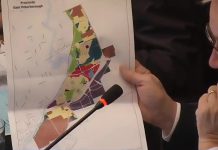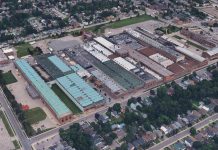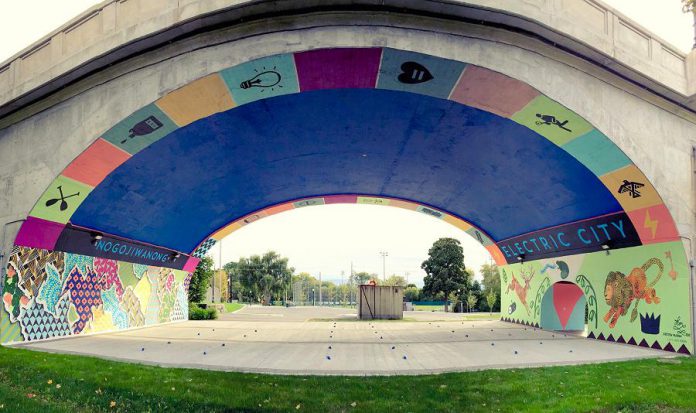
The City of Peterborough’s Public Art Program has issued a call to Indigenous artists who are interested in creating artwork to acknowledge Nogojiwanong on the ancestral territory of the Michi Saagiig people.
Known as the Nogojiwanong Project, this major capital collaboration, with a budget of $45,000, has been undertaken in the spirit of kinship with local First Nations Indigenous peoples in recognition of the 200th anniversary of Treaty No. 20. — the agreement between the Michi Saagiig people and the British Crown that made it possible for Europeans to settle in this region.
In precolonial times, the Peterborough area was a gathering place for the Michi Saagiig of the Anishinaabeg. The territory of the Michi Saagiig, who were known as “the people of the big river mouths” and “the salmon people”, spanned from Gananoque in the east, along the north shore of Lake Ontario, and west to the north shore of Lake Erie at Long Point. It spread as far north as the tributaries that flow into these lakes, from Bancroft and north of the Haliburton Highlands.
As they travelled between their winter camps and their traditional fishing grounds at the mouth of the Ganaraska River on Lake Ontario, the Michi Saagiig would gather at the bottom of a turbulent stretch of the Otonabee River — the Anishinaabe name of the river is Odenabe, meaning “river that beats like a heart” — which they named Nogojiwanong, meaning “place at the foot of the rapids”.
When Peter Robinson and 2,000 Irish immigrants began a colony in the area in 1825, they named the location “Peterborough”.
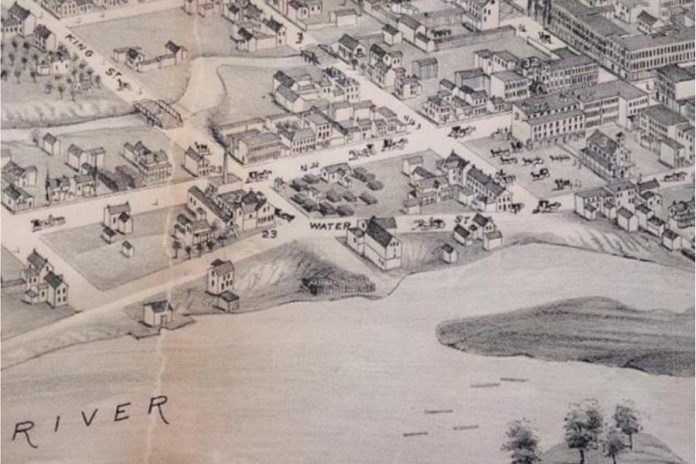
Over the past few decades, efforts have been made to publicly recognize the traditional name of Nogojiwanong, including a sign (now in a state of disrepair) in Millennium Park erected in the 1990s by the now-defunct Peterborough Arts Umbrella and, more recently, a mural under the Hunter Street Bridge.
The Nogojiwanong Project will support innovative proposals from both emerging and established artists working in a range of contemporary and traditional disciplines and media. Artworks should consider the setting and stories from this land, and bring attention to the evolution of local treaties and inherent treaty rights, in particular Treaty No. 20.
The artwork will be installed at a site (to be determined) within Millennium Park overlooking the Otonabee River.
The deadline for the call for expression of interest is midnight on Monday, April 23, 2018. A short list of artists will be announced in early May, with the selected artist to be announced in early July. The expected completion of the project is November 2018.
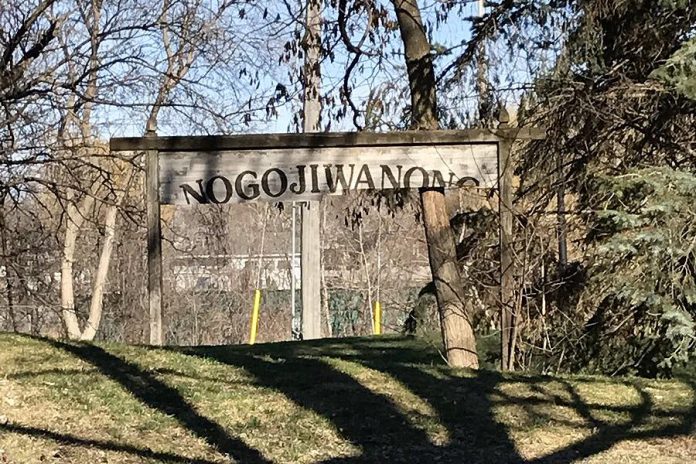
Details are available on the City of Peterborough’s website at peterborough.ca/Living/Arts__Culture__amp__Heritage/Public_Art/Nogojiwanong_Project.htm. Submissions must be made at publicartprogrampeterborough.submittable.com.
The Nogojiwanong Project committee comprises representatives from Alderville First Nation, Curve Lake First Nation, Hiawatha First Nation, the Mississaugas of Scugog Island First Nation, the Nogojiwanong Friendship Centre, the Niijkiwendidaa Anishnabekwag Services Circle, and staff from the City of Peterborough.
Applicants are encouraged to attend an information session at 6:30 p.m. on Wednesday, April 4th. at The Nogojiwanong Friendship Centre (580 Cameron St., Peterborough), where City of Peterborough staff will outline the specifics of the project and requirements.
Applicants planning to attend the session are asked to RSVP to the Nogojiwanong Project Co-ordinator Wendy Trusler at wtrusler@peterborough.ca.
